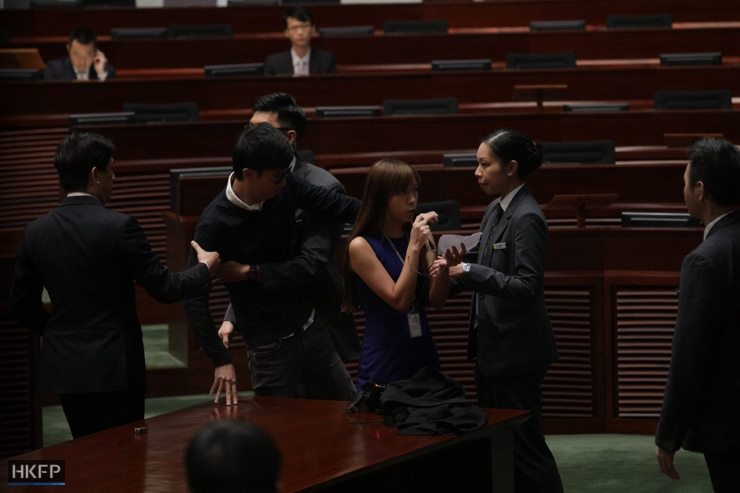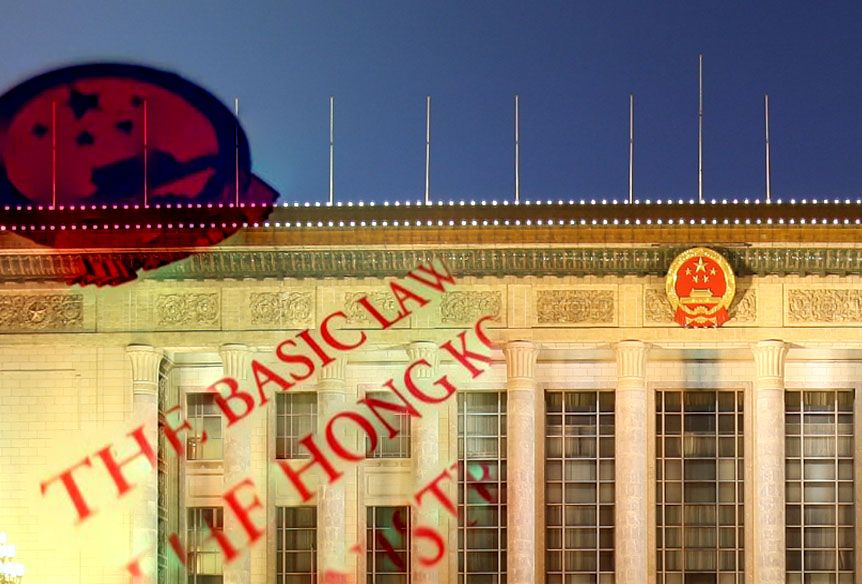Are ousted lawmakers Sixtus Baggio Leung Chung-hang and Yau Wai-ching secretly in the employ of China’s Ministry of Security? Is their political party, Youngspiration, a covert faction of the Communist Youth League?
Indeed, is Hong Kong’s entire independence movement an elaborate plot hatched by Chinese leaders conspiring with Chief Executive Leung Chun-ying to tame an unruly Legislative Council, shackle Hong Kong’s judiciary and reintroduce national security legislation that will make sneezing in Beijing’s direction a treasonable offence?

Well, if so, then the nefarious scheme is working brilliantly and the two closet patriots are to be congratulated for their grand deception on behalf of their beloved motherland.
If, on the other hand, their arguments and antics over the past month have been a genuine and earnest attempt to defend and enhance the singular freedoms enjoyed by Hong Kong as a Special Administrative Region of China, then they are, in a city full of lame-brained political leaders both young and old, the lamest of them all. And now, with every appeal of the High Court ruling that went so predictably against them last week, their sorry legend grows.

Their juvenile stunts during the swearing-in ceremony for a new LegCo term last month may have been intended as an attention-grabbing protest against the oppressive hand of the central government and its servile minions in Hong Kong; as things turned out, however, their obtuse shenanigans were the gift that Beijing had been waiting for since the handover from British to Chinese rule nearly 20 years ago: an anti-China demonstration so insultingly beyond the pale that it actually increased public support for the central government’s intervention into Hong Kong affairs while at the same time prompting an interpretation of the Basic Law by the Standing Committee of the National People’s Congress that, at the very least, will have a chilling effect on freedom of speech in LegCo and, at worst, lead to an outright purge of dissident voices from that body and set Hong Kong’s democracy movement back to the Stone Age.
Meanwhile, a combative and unpopular chief executive whose prospects of reelection were wavering between slim and none is now back in the fight for a second term after taking the lead in the battle against the Youngspiration pair. As it was his administration that filed the judicial review resulting in their ouster, CY Leung’s once-moribund dream of winning another five years as Hong Kong’s leader has been revived.

Leung must love this dynamic duo and can only hope for more like them. They are the perfect character foils for him as he works to convince Beijing that he is the best choice for Hong Kong—although his efforts may not be enough to save him from a potential challenge from his finance minister, John Tsang Chun-wah, who remains far more popular than his boss.
We’ll see. But one thing is for sure: Leung has done everything Beijing could have asked of him, and the localist movement, embodied by the two expelled legislators, has played right into his hands.
This may seem like “blaming the victim”—as Sixtus Leung claimed in a recent CNN interview—but in this bizarre case it is the victims who are guilty of victimising themselves.

Hong Kong’s constitutionally guaranteed freedoms are not going to be protected by crude protests that offend most of the people who live here and have now been found—albeit dubiously—to flout the Basic Law. In the end, the struggle to secure Hong Kong’s future cannot be cast as a contest of Us vs. Them, Independence vs. Dictatorship, Good vs. Evil. Those will all be losing battles for the city and the special freedoms it enjoys within a large, paranoid and authoritarian state.
No, this must be a dance, a subtle dance that requires, first and foremost, adherence to the “one country, two systems” principle and an appreciation and understanding of Hong Kong’s unique historical place in China.
In the wake of the oath-taking debacle, it’s time for the city’s pro-democracy forces to regroup and rethink a strategy that has gone terribly wrong.
